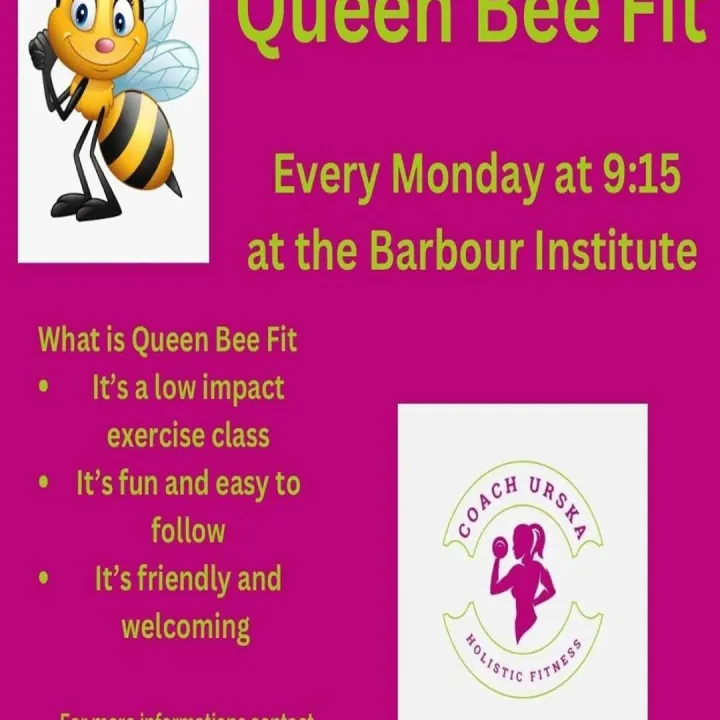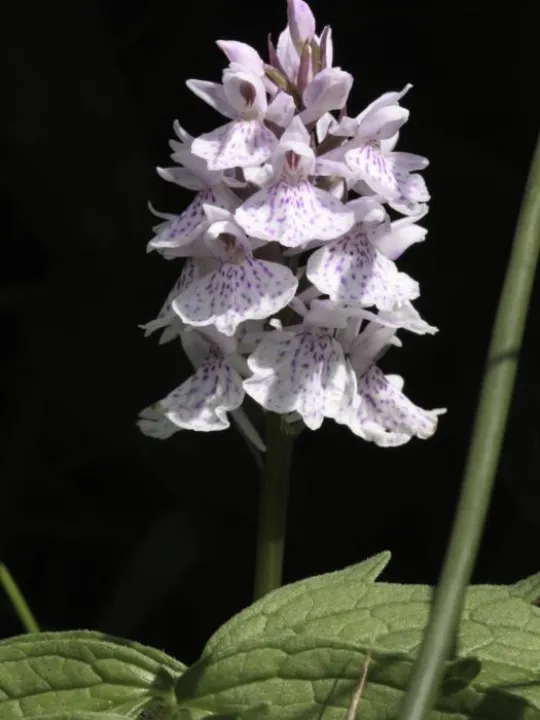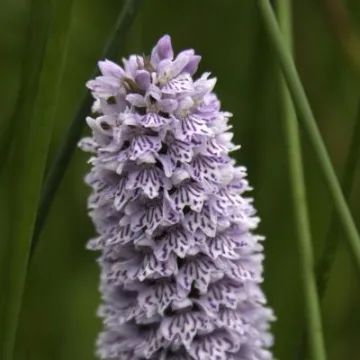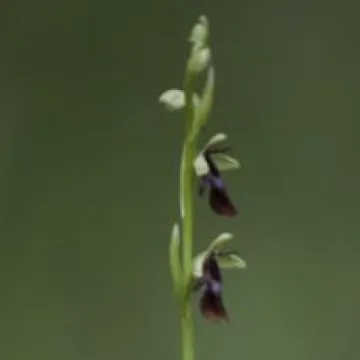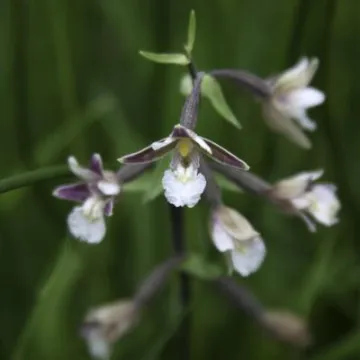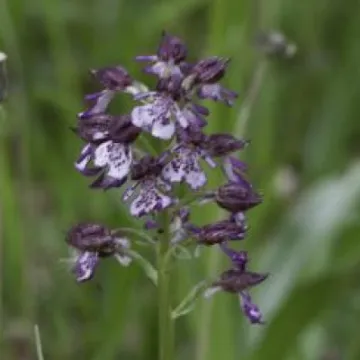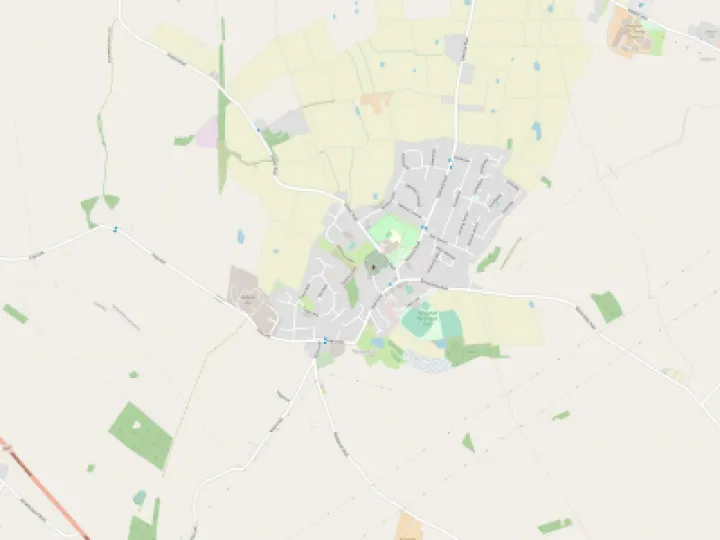Orchids. What does that bring to mind for you? Perhaps the colourful, exotic plants that grow in jungles or other hot places, that can be bought in Okells or Sainsbury's, and that can be difficult to keep alive (think how of many phaleonopsis bite the dust for the want of the right care). Well, yes, that is true but also no, there is more to orchids than that. They grow all over the world, bar Antarctica and the northern Arctic, making up one of the largest families of plants (about 28,000 species) and they take forms suited to the local conditions. By the by, did you know that vanilla pods are the fruit of a very specific set or orchids?
Orchids have a number of things in common, such as having three petals and three sepals. These are symmetrically arranged and one petal is usually modified, giving rise to lip-like features. Many also have the tell-tale "bulb" root structure that the Greeks thought looked a bit like gents' privates, giving them their name (orchiditis is inflammation of the "nuts"!). But it wasn't just the Greeks who had time to see these structures. Long ago, before people were surgically attached to their iSomethings or Galaxy Whatnots, Middle Age English must have seen the likeness too, as they gave some local orchids the names of Bollockwort and Bollockgrass. These would have been terrestrial orchids, suited to the UK, even though the majority of orchids grow on trees or the like (as epiphytes) and may want more or less water and warmth than the landlocked varieties.
But staying closer to home, if you know where to go, you can find native orchids in the UK. Names are more indicative of what the flowers look like, such as Bee, Spider, Lady's-tresses and Butterfly orchids. Some have been cultivated, being available from good nurseries, while others are very rare and not enough people get to see them. Quite often, sites of special scientific interest, SSSIs, gain these designations because of their ability to host and legally protect these little gems.
Most of the British natives (about 56 species) are rare nowadays, so come along on Wednesday 11th April to the Barbour Institute (7.30 for 7.45 pm start) to hear more about Native Orchids from an expert. Dr Wilson Wall, the Technical Director of Bewdley Orchids, is on a crusade to reintroduce more into the wild. Bewdleys grow the orchids from seed so Dr Wall is expected to tell us both about the growing and also how to set up garden meadows; he may also have insights into the Natural History Museum's Citizen Science project aimed at getting the general public to track orchids and see to what extent their flowering, normal April to September, is being affected by climate change. The talk will start at 7.45pm but arrive from 7.30 to get refreshments. TGS members can attend for free but we welcome guests for £3/head, inclusive of tea, coffee, biscuits.
Contact Chair Jen Benefield on 01829-770692 for any other details.
Get In Touch
Tattenhall Online is powered by our active community.
Please send us your news and views using the button below:





